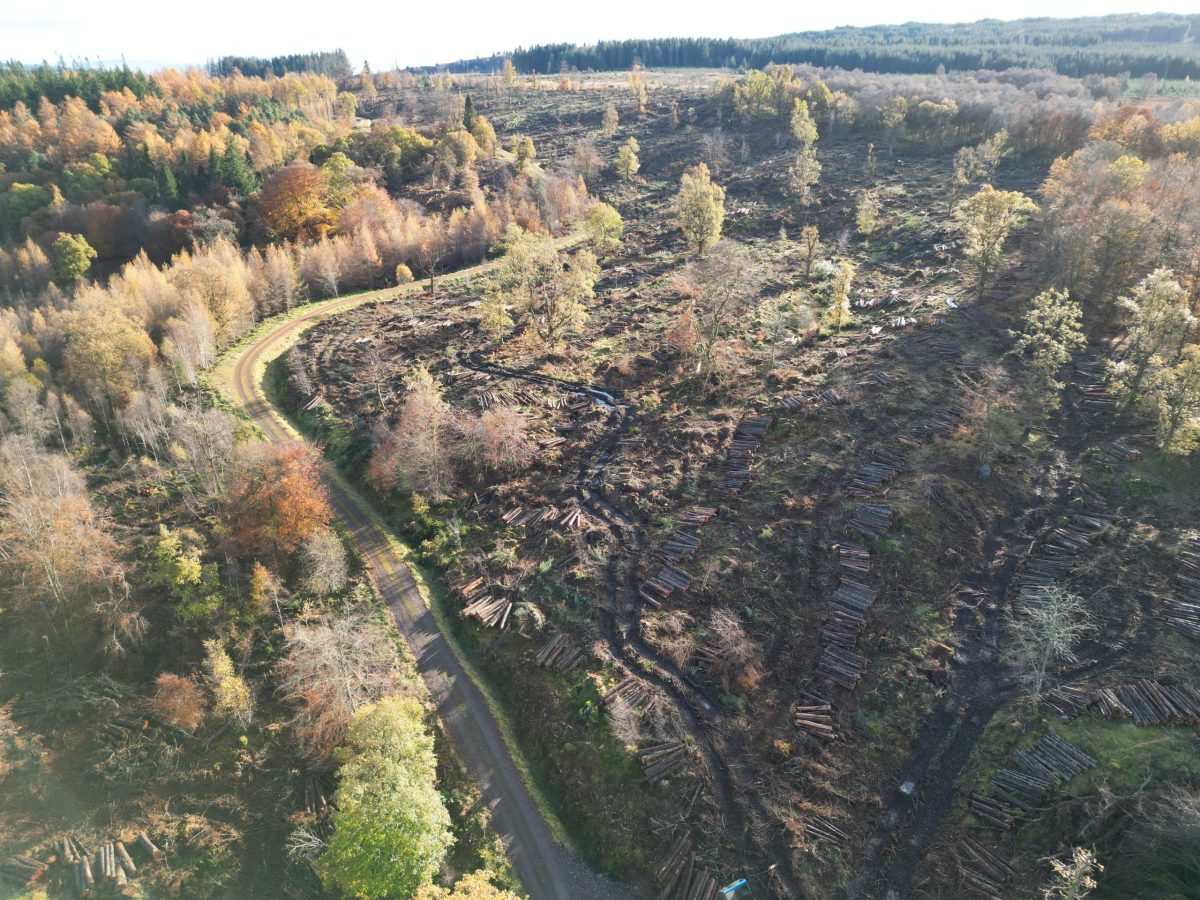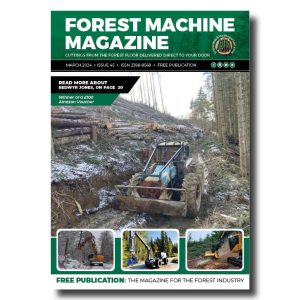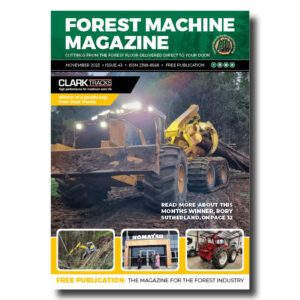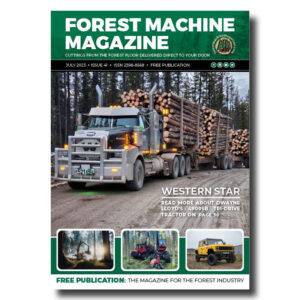UK Forestry sector urgently needs investment to address both current and long-term demands.
After speaking with industry professionals, the consensus is that forestry is in the midst of a worrying downturn and the UK Forestry sector urgently needs investment to address both current and long-term demands.

-
That’s a remarkable amount of work hours for a single machine, the Norcar 600 owned by Erkki Rinne is taken well care of, it even has the original Diesel engine.
-
Kieran Anders is a forestry contractor working in the lake district. His work involves hand cutting and extracting timber using a skidder and tractor-trailer forwarder.
-
It is not possible to eliminate chain shot, but there are simple steps that can be taken to reduce the risk.
-
Arwel takes great pride in the fact that the mill has no waste whatsoever, “the peelings are used for children’s playgrounds, gardens and for farm animals in barns in the winter and the sawdust has multiple uses in gardens and farms as well.
-
Timber hauliers need to encourage young blood in, and also look after the hauliers we have, we need make the sector a safe and positive place to work.
FIND US ON
Related Posts
Here are a few of the issues that are contributing to this.
*Tree mortality has increased by approximately 90% in some ancient woodlands over the past few years, primarily due to drought, heat, pests, diseases, and deer grazing. Natural regeneration is failing across extensive areas of these forests. The situation is raising concerns about ecological collapse, with experts warning that forest ecosystems could fail within 50 years unless significant intervention occurs.
*Although planting in England increased by over 25% in 2024–25, the UK total dropped from 20,660 to 15,690 hectares due to a steep decline in Scotland, where planting fell from 15,000 to 8,470 hectares.
*A new Forestry Sector Skills Plan (2025–2035) emphasises the need to recruit 600 new technical workers each year to replace an ageing workforce and meet tree-planting targets.
* The UK faced its worst wildfire season on record in early 2025, with an unprecedented area burned and hundreds of large fires reported by June’s end.
This is worrying as the UK is experiencing a significant crisis in timber harvesting and domestic timber supply, primarily caused by long-term under-investment in productive forestry, a decreasing conifer forests, and an increasing demand that domestic production cannot satisfy.
The supply of domestic timber is in decline: In 2023, the UK produced 9.8 million green tonnes of roundwood, representing a 3% decrease from the previous year. Currently, imports account for approximately 80% of all wood used in the UK, making it the world’s second-largest net importer of wood, after China.

Conifer plantations are shrinking: Over the past three decades, approximately 40,000 hectares of conifer forests in England have been cleared and not replanted, resulting in a significant reduction of the productive timber base.
Tree planting is misaligned with demand: A target was established in 2019 to achieve 30,000 hectares of new planting per year. However, by 2024, only 2,260 hectares had been planted in England, with just 12% of that being productive woodland (approximately 270 hectares). Although total planting in 2023/24 reached around 20,660 hectares, much of it consisted of broadleaf trees, which are less suitable for timber harvesting compared to conifers.
In the long term, UK demand for sawn timber, construction-grade wood panels, and structural softwood is expected to rise—estimated to increase by 90% by 2050—but forest cover is growing too slowly, and not with the species required.
Current government targets and tree planting initiatives lack coordination around timber production priorities. Devolved administrations like Scotland and Wales are making more headway, but England lags, especially in productive conifer plantations.
Recent government initiatives—such as the timber construction roadmap, regulatory reviews, and research into seed supply and tree breeding—could also provide assistance. However, the opportunity to reverse the decline is limited and must be acted upon immediately.
The government must be held accountable for this crisis if investment in recruitment, training, and establishment is delayed.

Sign up for our free monthly newsletter here
Contact forestmachinemagazine@mail.com to get your products and services seen on the world’s largest professional forestry online news network.
#homeoflogging #writtenbyloggersforloggers #loggingallovertheworld
Written by loggers for loggers and dedicated solely to the equipment used in forestry operations.






